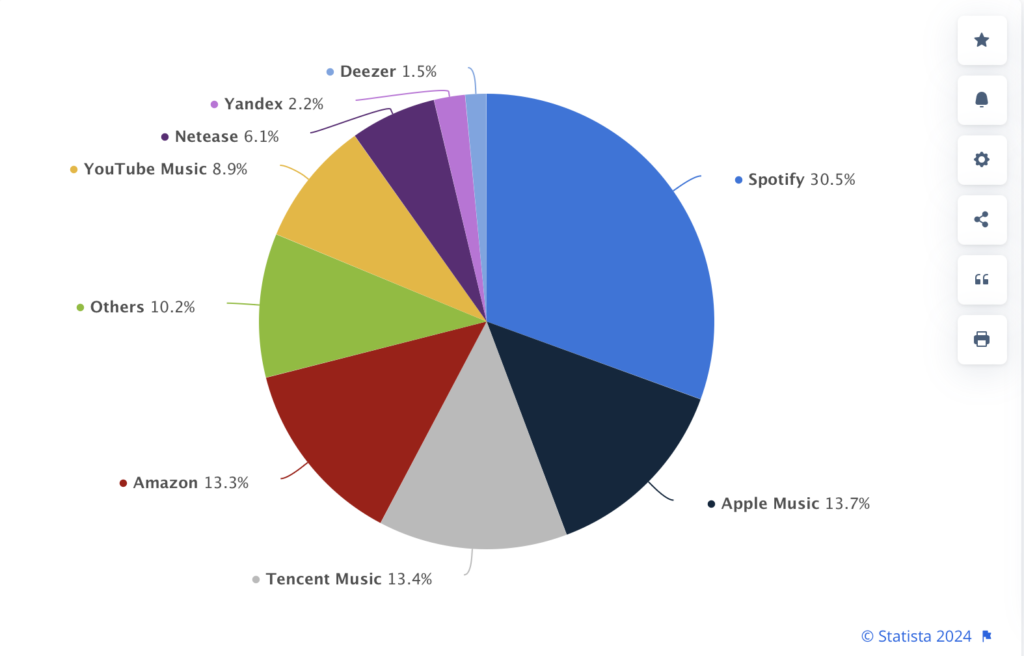EU will fine Apple for abuse of dominant position against music streaming rivals
Apple risks being fined by the European Commission, which is ready to file a fine of around €500 million. This was reported by the Financial Times, which has no doubts about it, adding that the official communication will arrive at the beginning of March. The fine would be the final act, at least pending the appeal, of a long and articulated process that began in March 2019, when Spotify filed a complaint with the European Union because Apple allegedly hindered competition for streaming music apps by exploiting App Store rules on iOS devices, with the aim of favouring Apple Music.
For the lawyers of the former Swedish startup, the world’s leading audio streaming service, the Cupertino-based company ‘imposed continuous rules and created an unsustainable situation‘, highlighting, in addition, the obligation to pay a ‘30% tax for applications that compete with Apple Music’.
Irregular practices to favour their services
In essence, the dispute hinges on Apple’s failure to inform iPhone owners of the possibility of using cheaper alternatives to subscribe to a music streaming app without going through the App Store for Spotify. The case is conceptually identical to many antitrust investigations involving Google in recent years, often found guilty of abusing its dominant position to promote its own services over competitors. Imposing anti-competitive business practices is one scenario that runs counter to EU single market rules.
Meanwhile, the European Commission met with both sides to discuss the matter further, with Apple changing its competition strategy in early 2022. Unlike in the past, the US company has allowed app developers to advertise any lower subscription prices outside the App Store. In addition, it allowed Spotify and all other developers to send emails to customers to update them on promotions and expected benefits provided by subscribing online instead of via Apple’s digital store.

Brussels will thus have to decide whether the Tim Cook-led company’s actions complied with the rules before and after the company’s change of conditions. And from what has filtered through, it seems that the institution that wields legislative power in the European sphere is intent on submitting the first fine against Apple, which was hit in 2020 by the French European antitrust authority for imposing illegal practices, imposing a €1.1 billion fine for preventing French retailers from competing on the prices of its devices.
The fine was later reduced to €372 million after an appeal by Apple, which will again implement a defensive strategy aimed at unhinging the charge. “The App Store has helped Spotify become the leading music streaming service in Europe and we hope the European Commission will put an end to the pursuit of a complaint without merit,” are the words of an Apple spokesperson regarding the diatribe with the EU triggered by Spotify.

A change of scenery, but only in Europe
Things will certainly change as of 7 March, when the Digital Markets Act comes into force. It will allow developers to share details of offers and payment methods without being subject to the conditions demanded by Apple and Google via their app stores. A new scenario that, Spotify says, will allow users to ‘switch from a Free to a Premium subscription directly within the app, an option we are not currently allowed to do, nor is telling how much our various subscriptions cost, how users can save and where to subscribe’.
While it will be for the experts to decide who will be right in this dispute, going beyond the specific case, the repetition of fines levied by market regulators against big tech companies – from Amazon to Google, Meta, Microsoft and Apple, plus ByteDance for TikTok – demonstrate the need to find effective countermeasures to attempt to undermine the power and influence of those that can no longer be considered companies but powers active on a global scale and endowed with a shock force capable of imposing rules and processes to which companies and users must submit.



